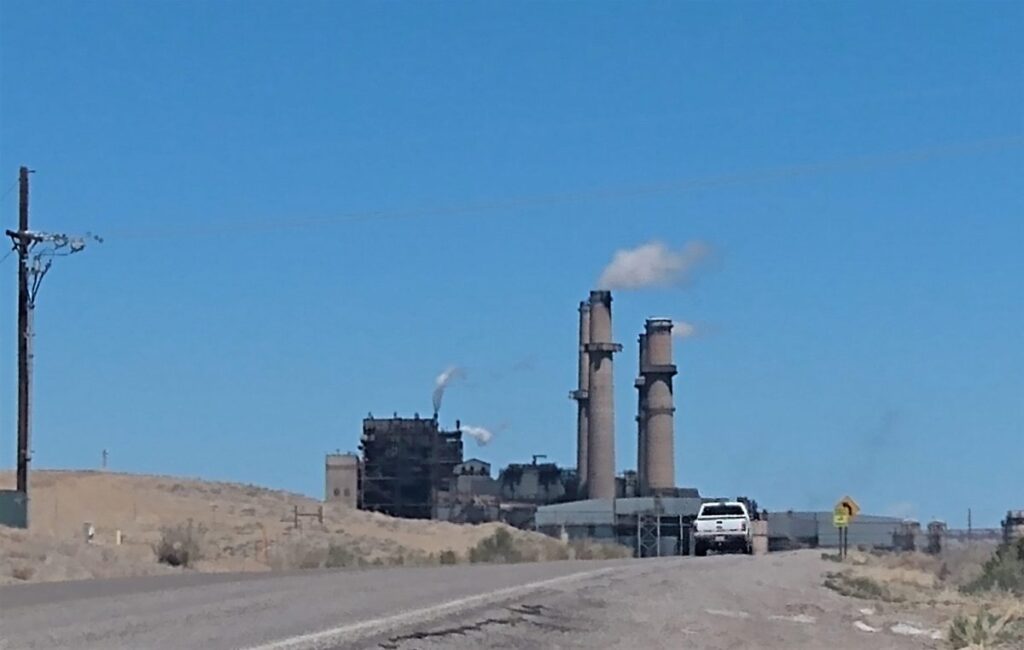State Supreme Court rejects constitutional challenge to Energy Transition Act
5 min read
The New Mexico Supreme Court rejected a constitutional challenge to the landmark Energy Transition Act, the state law that provided utilities with the ability to refinance past investments into coal-fired power plants using low-interest bonds to facilitate closing the generating facilities.
The case came to the state Supreme Court in April 2020 after the New Mexico Public Regulation Commission approved an application from the Public Service Company of New Mexico to abandon the San Juan Generating Station, which meant ceasing operations of the facility, and refinance the past investments.
Two advocacy groups focused on consumer rights—New Energy Economy and Citizens for Fair Rates and the Environment—filed an appeal challenging the constitutionality of a portion of the Energy Transition Act. Both groups support the increased renewable portfolio standards that the law put into place.
Non-bypassable charges on customers’ bills to pay off the bonds were at the center of the legal challenge. New Energy Economy and CFRE argued that the Energy Transition Act required the PRC to grant whatever amount of securitization—or low-interest bonds—the utility requested. The groups argued this limited the PRC’s authority and violated consumers’ rights to due process. In the case of the San Juan Generating Station, that amount was $361 million. The ETA requires that a portion of that bond revenue go to assisting impacted workers and communities. The bonds also fund decommissioning and a recent ordinance passed by the San Juan County Commission requires that the plant be demolished and the site remediated upon the end of operations.
“We are pleased this decision once again confirms the legality of the Energy Transition Act (ETA), allowing PNM to continue its progress in a just transition towards a clean energy future,” PNM said in a statement released Monday. We are also encouraged with today’s decision by the New Mexico Supreme Court rejecting claims from New Energy Economy intended to thwart PNM’s plans to implement the ETA.”
PNM described the Energy Transition Act as “critical legislation that aids in our transition to a cleaner energy future.”
The Supreme Court case delayed funding that was meant for the impacted workers, leading to San Juan Mine employees being laid off without access to increased severance pay that PNM had proposed to provide as part of the securitization. It also put in question the funding for the impacted communities and workers.
“PNM is studying the court’s decision to evaluate next steps that PNM may take in potentially pre-funding portions of state agency funds authorized by the ETA for economic development and communities in the San Juan area. PNM will also consider possible funding [of] the severance and job trainings for Westmoreland employees at the San Juan mine, many of whom have been laid off this past year,” the utility said in its statement.
Some environmental advocates in northwest New Mexico praised the Court’s decision.
“This decision is welcome news,” Mike Eisenfeld, the energy and climate program manager for San Juan Citizens Alliance said in a press release. “It clears away the obstacles that were keeping support from flowing to communities like Farmington, which desperately need assistance to help in the transition to post-coal economies. That includes funding for innovative clean energy projects that will be such an important part of our rebuilding.”
Carol Davis, the executive director of Diné C.A.R.E., said the Court’s decision “is a step in the right direction to secure a healthier future for our communities.”
Justice David Thomson, who wrote the opinion issued by the state Supreme Court on Monday, rejected the argument the law infringed on due process rights of customers.
“In the language of the ETA, we see nothing discordant with the procedural requirements of due process. In fact, New Energy and several other objecting parties representing the rights of energy consumers participated extensively in these abandonment proceedings and presented various claims and defenses,” Thomson wrote.
Thomson further wrote that New Energy Economy and CFRE had not demonstrated that the law “will result in charges beyond the ‘significant zone of reasonableness in which rates are neither ratepayer extortion nor utility confiscation.’”
The state Supreme Court did not weigh in on New Energy Economy and CFRE’s assertion that the Energy Transition Act limited the PRC’s authority to review the charges passed on to customers and disallow securitization of imprudently incurred costs. New Energy Economy Executive Director Mariel Nanasi pointed to that when reached by phone on Monday.
The PRC in December rejected PNM’s application to transfer its 13 percent ownership share of the nearby Four Corners Power Plant to Navajo Transitional Energy Company and refinance past investments through securitization. One of the reasons the commission cited for that decision was that the matter of prudence of past investments was left undecided during a 2016 rate case and the decision was deferred to a future rate case that has not yet happened.
PNM has since appealed the PRC’s order in the Four Corners case to the state Supreme Court. Nanasi said that, while the Court did not weigh in on the matter of prudence in the San Juan case, it will likely be asked to make that ruling during the Four Corners case.
“Significantly, the Supreme Court upheld the Commission’s authority and that the ETA should be construed in harmony with existing legislation. It did not reach New Energy Economy’s most important issue – whether ratepayers should be stuck with imprudent costs as is the case in Four Corners. It deferred making a finding on that issue which is now squarely before the NM Supreme Court in PNM’s Four Corners appeal,” Nanasi said in a press release.
The Energy Transition Act has faced several court challenges since it became law in 2019, including whether it applied to the San Juan Generating Station abandonment case since the PRC had opened an inquiry into the closure of the plant in January of that year prior to the bill’s passage.
This article was originally posted on State Supreme Court rejects constitutional challenge to Energy Transition Act





